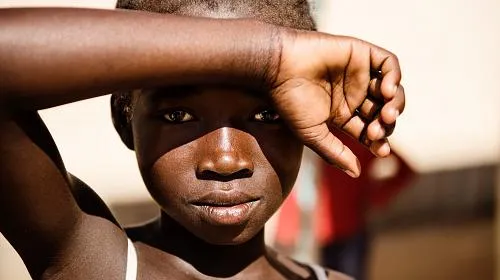Geneva/London – The world’s poorest countries continue to shoulder the burden of the global refugee crisis, international aid agency CARE International has warned today.
New findings by the UN Refugee Agency’s Global Trends report show that the world’s developing regions are hosting 84 percent of all refugees. According to the UNHCR’s latest figures, Germany is the only European country in a list of the top 10 refugee host nations, meaning some of the poorest countries in the world carry the heavy burden of a growing global refugee crisis.
Caroline Kende-Robb, Secretary General of CARE International, said: “This situation is inherently unsustainable. It’s exposing the millions fleeing war and persecution in countries like Syria, South Sudan, Venezuela, Afghanistan and Iraq to intolerable misery and suffering.
“We have a small number of poorer countries who have been left to do far too much just because they are neighbors to a crisis. This unequal share is exacerbating the global refugee problem, as inadequate conditions in host countries are pushing many to embark on dangerous journeys while women, girls and other vulnerable people are put at risk to abuse and exploitation. We would like to see the wealthier countries taking more responsibility by increasing financial support to countries that welcome high numbers of refugees; as well as offering safe asylum and resettlement options to vulnerable groups,” she explained.
Data from the Global Trends report shows that the number of people fleeing war, persecution and conflict exceeded 70 million in 2018 – the highest level that the UNHCR has seen in its almost 70 years.
“I was recently in Jordan – a country that hosts the tenth largest refugee population – and the second largest relative to national population with 72 refugees per 1,000 people. In Jordan, it is clear that enabling refugees’ access to labor markets will not be easy.
“Like Turkey and Lebanon, which are among the highest refugee-hosting countries in the world, due to the crisis in Syria, Jordan has a weak economy and high unemployment levels. This forces refugees to seek employment informally, increasing the exploitation and the aggravation of refugees’ precarious situations – especially women and girls,” she noted.
CARE International experts have warned that the Syrian refugee crisis could grow exponentially worse following the recent surge in violence.
Michael Fuhrer, CARE’s Managing Deputy Regional Director for the Middle East and North Africa, said: “The Syrian conflict has caused the largest displacement crisis in the world. Hosting 5.4 million Syrian refugees has caused great strain on countries in the region for the past eight years. To tackle the protracted nature of displacement and its consequences on both refugees and hosting countries, we need to think beyond the humanitarian response and support long-term, strategic solutions for Syrian refugees, even though Syria faces an uncertain future.”
Aid agencies and authorities in Uganda – the largest refugee hosting country in Africa- are also facing enormous challenges in maintaining and stabilizing existing services for refugees from neighboring countries faced by conflicts in East Africa.
Delphine Pinault, CARE International Country Director in Uganda, warned that a lack of support for host communities could reduce their willingness to share land and resources and increase tensions between communities.
She said: “In 2018, only 57 percent of Uganda’s Refugee Response Plan budget was funded. The contributions in 2019 are not even reaching 20 percent of the necessary funds.
“If the funding does not increase urgently, the consequences could be drastic, with more children out of school due to cuts to education programs. We are also noticing a lack of capacity to prevent communicable diseases such as Ebola; worsening sanitary conditions and adverse impacts on environment. Additionally, we are particularly concerned about the minimized response to Sexual and Gender-Based Violence which is exacting a heavy toll on women and children, who account for 83 percent of the refugee population,” Pinault explained.
ABOUT CARE
Founded in 1945, CARE is a leading humanitarian organization fighting global poverty. CARE places special focus on working alongside poor girls and women because, equipped with the proper resources, they have the power to lift whole families and entire communities out of poverty. Last year, CARE worked in 94 countries and reached more than 80 million people around the world. To learn more, please visit: www.care.org.
MEDIA CONTACT
Vanessa Parra, +1 917-525-0590, vanessa.parra@care.org

